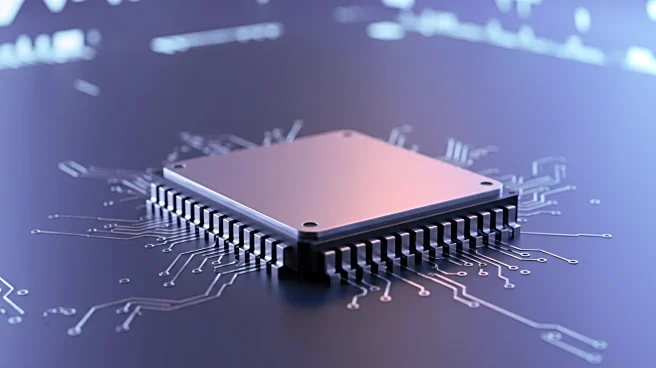What's Happening?
President Trump has announced a $9 billion investment in Intel, acquiring a 9.9% equity stake in the company. This move is part of a broader effort to bolster domestic semiconductor production. However, analysts express skepticism about the investment's ability to revitalize Intel's struggling contract-chipmaking business. Intel's CEO, Lip Bu Tan, has indicated that the company may need to exit the chip contracting sector if it fails to secure significant customer commitments for its advanced manufacturing processes. Despite the financial injection, Intel faces challenges in competing with industry leaders like TSMC and Nvidia, particularly in the realm of artificial intelligence chips.
Why It's Important?
The investment underscores the U.S. government's commitment to strengthening domestic semiconductor capabilities, a critical component of national security and technological leadership. However, the skepticism surrounding the deal highlights the complexities of reviving a company that has lost its competitive edge. Intel's ability to attract external customers and improve its manufacturing yields will be crucial for the success of this initiative. The outcome of this investment could influence future government interventions in the tech industry and shape the competitive dynamics of the global semiconductor market.
What's Next?
Intel will need to demonstrate its capability to produce advanced chips and secure customer commitments to justify the investment. The company plans to expand its U.S. factories and begin high-volume production later this year. The government's involvement as a major shareholder may also lead to changes in corporate governance and strategic direction. The tech industry will be watching closely to see if Intel can leverage this investment to regain its position as a leader in semiconductor manufacturing.










